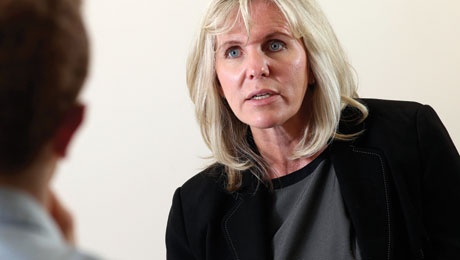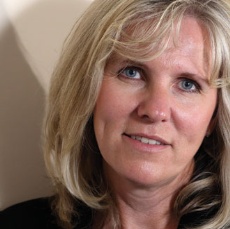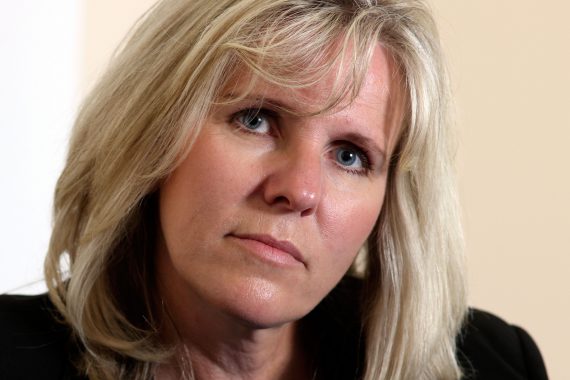
Manchester may seem an unlikely setting for a healthcare revolution, but it is currently the Government’s favourite place in which to try out new ideas for the NHS.
First, it was the test bed for the Prime Minister’s seven-day GP access experiment and then earlier this year the Chancellor unexpectedly offered the local authority complete control over its NHS budget.
And at the centre of this – representing GPs in the region – is the outspoken and engagingly acerbic Dr Tracey Vell.
The LMC leader speaks to Pulse after a meeting with NHS England. She’s been spending plenty of time with chief executive Simon Stevens over the past few months discussing the devolution project branded ‘DevoManc’ – apparently he has a distinctly hands-on approach to the project, but ‘keeps quiet’ in meetings.
But as Manchester-style powers look set to be rolled out to other regions, with London and Cornwall touted as next in line, Dr Vell speaks to Pulse about whether GPs should be concerned.
Were you aware of the devolution plans before they were announced?
No, it was a total shock. I think there were a few at local authority level that would have known, but that wasn’t clear to any of us. It was even more a surprise to general practice, since we weren’t initially involved in the committees representing groups of health workers and the local authority in the first part of the devolution process.
Does general practice now have a seat at the table?
It didn’t originally, but it does now. We had a conversation about how, if the agenda was a big transformation of primary care, then surely providers should have a place around the table.
At first, I spent most of the time just highlighting the differences between GPs who work for CCGs, work for federations, work in practices, registrars, salaried GPs and locums. I also had to explain that the LMC is a statutory body supporting the whole of general practice, and that we are here not just to solve problems, but actually to be strategic. That is still a difficult one for people to understand, and some days I feel I am still swimming against the tide.
What should GPs be aware of if devolution comes to their area?
Make sure your influence is felt at an early stage; you need to be fighting to be around the table before devolution comes. Show the differences between [grassroots GPs], commissioners and federations and set yourself up in such a way that you are able to withstand the huge amount of work that comes with this.
If you’re a small LMC you need to work with partners in your locality so you have voice that’s going to match devolution geographically.
What are the main flagship policies in for DevoManc? Is there a GP voice on how these things are done?
Yes. At the moment, seven-day access has been put forward as an ‘early implementer’ policy. We’ve had influence and changed the shape from the national policy to a local policy that’s acceptable to GPs. It was hugely important to get something that’s doable and is not going to put patient safety at risk.

Last year you said seven-day access wasn’t the best use of resources. Have you changed your position now?
Yes – seven-day access now works as a bigger part of a jigsaw, instead of an add-on. My previous concern was that it would put more pressure on overworked and under-resourced practices. We need to make sure we don’t overextend practices, and deal with out-of-hours access as a commissioned non-core service, not a responsibility for practices. I still have issues around duplicating resources. Why are we extending core hours when we already have fantastic out-of-hours services?
We’re seeing a lot of practice closures nationally – is that something you’ve seen in your area?
We’ve not had huge swathes of practices closing, but we’ve had mergers and moves to employ different groups of practitioners, such as nurse practitioners. Workforce is a huge issue and we’re haemorrhaging GPs who are in the later part of their career and don’t want to be in partnerships or buildings that are expensive.
We will hopefully be able to structure in some new-style contracts to help us keep this expertise within our communities rather than lose it.
Are PMS reviews beginning to bite?
Yes, although some places are going through the joint commissioning committees, which have a strong process involved with them, and others are largely piecemeal – with managers saying ‘we are not contracting outside core’ and the CCG doing the rest.
There are so many threats to PMS practices, which is partly why representation is important through devolution, because I can sit on groups when the subject may not be on the agenda and can say: ‘Well if we’re looking to establish this happening in this part of the community, why are we destabilising the self-same practices that deal with drugs or with alcohol or with students, only to then rebuild them in a different structure?’
What did you think of the ‘new deal’ for general practice?
I don’t know what was ‘new’ or a ‘deal’ in what we were told. The only way you make people come to general practice is that you make it worth coming to and there was no structure for how we make that happen. Plus it has a timescale we all know is way off what we were being told. So that’s not really new or a deal. I didn’t really think much of it because there wasn’t much content to think about. But I’m hoping that Manchester is brave enough to make a difference and maybe set a precedent for the rest of the country.
CV
Age
47
Family
Married for 22 years and has two children aged 16 and 17
Career
1991
Graduated in medicine from the University of Leicester
1995
Qualified as a GP
1996
Set up one of the first out-of-hours limited companies
2006
Began working as a GP
2014
Became honorary secretary of Manchester LMC
2015 – present
Chief executive of Manchester LMC. Appointed to the devolution board for Manchester
Career high
‘Hasn’t happened yet.’
Interests
Supporting her daughter Chloe, who rides for the Great Britain dressage team
Pulse October survey
Take our July 2025 survey to potentially win £1.000 worth of tokens












